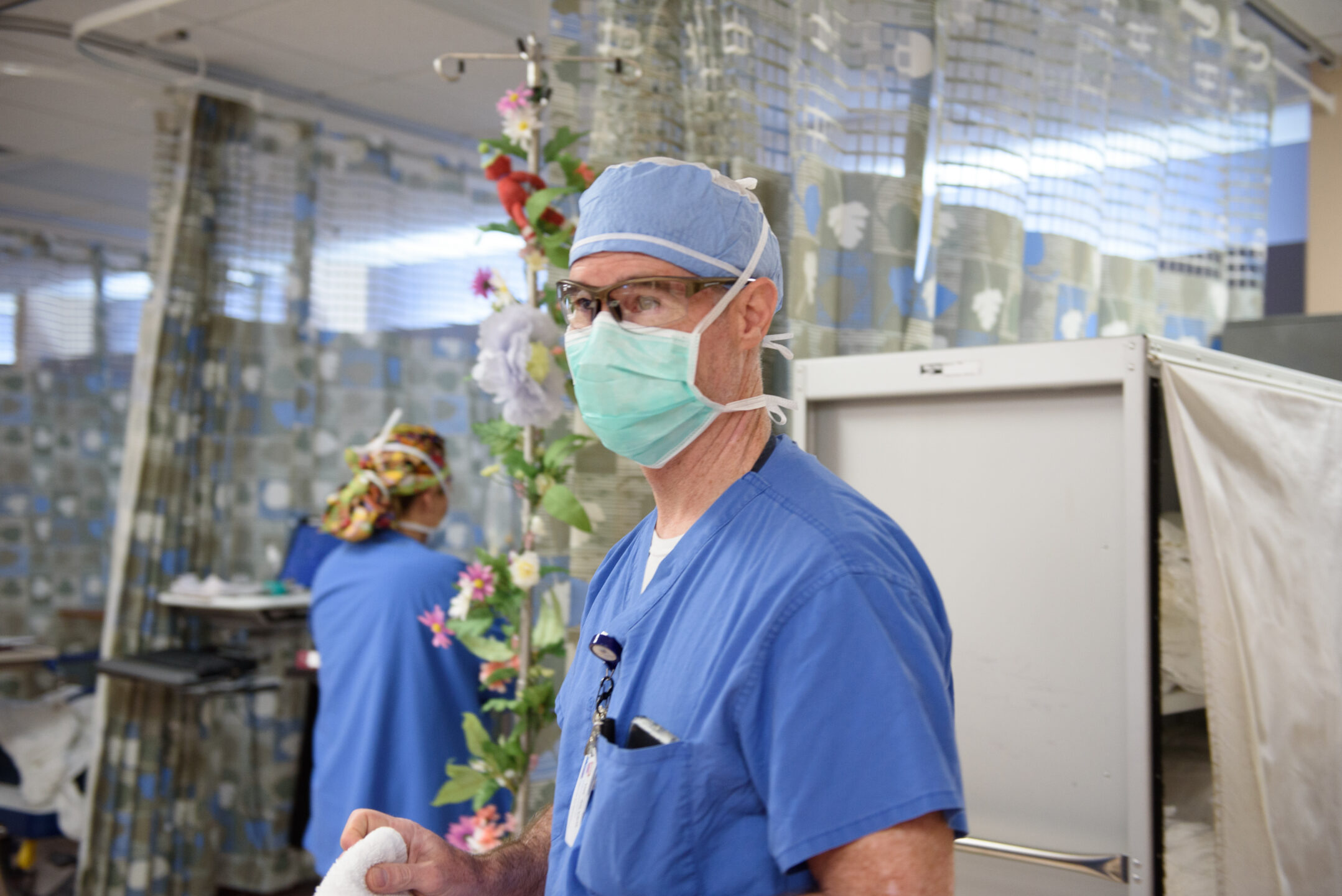Access your own patient portal, provided by NCSH.
Hand & Wrist
Sports Medicine
Your Tennis Elbow Surgery Questions Answered
Mon, Mar 27, 2023

Tennis elbow is a repetitive motion injury of forearm muscles and the tendons that connect those muscles to the outside of the elbow. Also known as lateral epicondylitis, tennis elbow mainly causes pain on the outside of the joint. It can also cause weak grip strength.
Surgery for tennis elbow is typically used only after conservative treatments fail to bring relief from symptoms. If exercises and physical therapy haven’t helped, and you still can’t fully use your arm, you might be a candidate for surgery.
What Is Tennis Elbow Surgery?
 Anyone who frequently and repetitively extends the forearm can develop this painful injury and need surgery. Racket sports like tennis are a common cause, but certain professions also carry a higher risk. Plumbers, carpenters, auto workers, and other people in jobs that require forearm extension can become debilitated by painful tennis elbow.
Anyone who frequently and repetitively extends the forearm can develop this painful injury and need surgery. Racket sports like tennis are a common cause, but certain professions also carry a higher risk. Plumbers, carpenters, auto workers, and other people in jobs that require forearm extension can become debilitated by painful tennis elbow.
Surgery to repair tennis elbow removes any damaged muscle or tendon tissue and reattaches the forearm muscle to the bone of the joint.
Most People with Tennis Elbow Do Not Need Surgery
Most people recover from tennis elbow with more conservative treatments. Patients are generally not candidates for surgery until they have tried other treatments for at least three months with minimal results.
Initial treatment for tennis elbow begins with rest. Often, giving the muscles and tendons a break for a few weeks is enough to reduce inflammation and pain. Medications can also help lower inflammation.
Other conservative treatments include physical therapy exercises and stretches, bracing to help rest the affected tissue, steroid injections, and platelet-rich plasma injections.
Success Rates for the Procedure are High
If other treatments don’t help, you are likely a good candidate for surgery. It is a simple procedure done on an outpatient basis with minimal risks and high success rates. Tennis elbow surgery success rates are between 80% and 97%.
Surgery on Tennis Elbow Can Be Open or Arthroscopic
If you need this procedure, your orthopedic surgeon will explain the approach and how it is done. Surgery can be open, which involves larger incisions to help the surgeon see inside the joint, but many surgeons are able to use a minimally invasive approach.
Arthroscopic surgery on the elbow uses a couple of minor incisions. The surgeon inserts a small scope with a camera, uses the camera to look inside the joint, and then utilizes tiny surgical tools to make the repairs. Arthroscopic surgery causes less damage to surrounding tissue and usually has a shorter recovery time.
Serious Complications Are Uncommon
As with any surgery, there are risks associated with tennis elbow surgery. However, this is a fairly simple procedure with high success rates and minimal complications. General potential risks include infection and damage to nerves or blood vessels. Uncommon but possible complications include:
- Loss of forearm strength
- Limited flexibility and range of motion in the elbow joint
- A need for additional surgeries
Full Tennis Elbow Surgery Recovery Can Be Several Months
One of the reasons it’s best to use conservative treatment if possible is the duration of recovery after joint surgery. Complete tennis elbow surgery recovery time, including being able to engage in sports and other activities again, is four to six months.
You should be able to go home the day of the surgery. Expect to wear a splint for about a week to immobilize the arm.
After a checkup with your surgeon, you will get sutures removed. You might get fitted with a less restrictive splint to wear for a couple more weeks. You will then begin physical therapy to rehabilitate and build strength in the forearm and around the joint. Your surgeon will tell you when you can begin to use the arm more fully, including returning to work or sports.
The orthopedic surgeons at North Carolina Specialty Hospital have expertise in tennis elbow and its treatment. If pain and immobility are bothering you, request an appointment online to consult with one of our orthopedic elbow specialists.
RELATED NEWS

Secrets to Sleeping with Tennis Elbow
Despite the name, tennis elbow doesn’t happen only to tennis players. It is a fairly common joint injury, occurring in between 1% and 3% of the population and resulting from overuse. Irritation and pain in…
Continue Reading
Stay Current
Educational Articles & More
View News & Press
